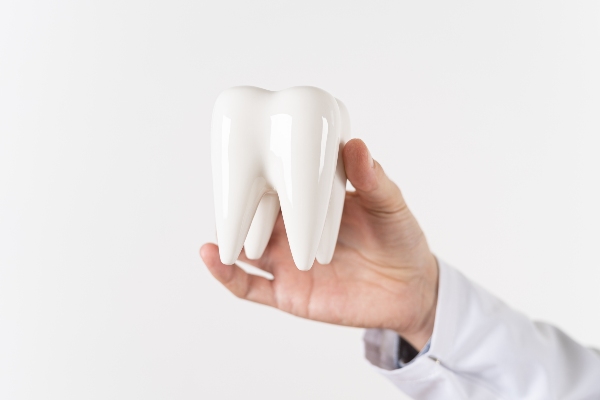 Tooth extraction can be a daunting prospect for anyone, let alone children. Fortunately, our team can help parents learn everything they need to know about tooth extraction. As a parent, it is natural to be concerned about your child's well-being during a medical procedure. Knowing what to expect before, during, and after this common dental procedure can help make the process easier for you and your child.
Tooth extraction can be a daunting prospect for anyone, let alone children. Fortunately, our team can help parents learn everything they need to know about tooth extraction. As a parent, it is natural to be concerned about your child's well-being during a medical procedure. Knowing what to expect before, during, and after this common dental procedure can help make the process easier for you and your child.
When a child needs a tooth extraction
While dentists often try to avoid pulling teeth and only do so as a last resort, there are cases when they may need to extract a child's tooth, including:
- Overcrowding
- Damaged or broken tooth beyond repair
- Significant tooth decay
- A baby tooth has not fallen out on its own
- Gum disease that has caused infection, swelling, and discomfort
Fortunately, pediatric tooth extraction is much easier and simpler than removing a permanent tooth. This is because the baby tooth has shorter roots and needs to come out anyway. Children typically heal faster and experience less pain after a baby tooth extraction than those who undergo a permanent tooth extraction.
How to prepare a child for tooth extraction
It is important to help a child prepare mentally and emotionally before a tooth extraction. Parents and guardians can explain the need for the extraction in a gentle and age-appropriate way to ease any anxiety they may have about the procedure. Assure them that the dentist will make them as comfortable and safe as possible. Encourage them to ask questions and express any concerns they may have.
What to expect on the day of the extraction
On the day of the tooth extraction, the dentist will numb the treatment area with local anesthesia. This ensures that the child will not feel any pain during the procedure. Depending on the complexity of the procedure, some dental offices offer additional sedation options such as nitrous oxide (laughing gas) or oral sedatives; be sure to ask the dentist about their sedation options leading up to the procedure.
The dentist will use specialized instruments (typically forceps and an elevator tool) to gently loosen and remove the tooth from its socket during the extraction. While the child may feel some pressure, they should not experience any pain. For a simple tooth extraction, the process is usually quick and straightforward for a single baby tooth, lasting only a few minutes.
After the extraction, the dentist will monitor the child for a short time to ensure they do not experience any immediate postoperative complications. The dental team will then give parents and guardians detailed instructions to help them care for the child as they recover. These instructions include managing discomfort, oral hygiene, and what foods to eat or avoid.
Post-extraction recovery
It is normal for children to experience some discomfort and swelling after the extraction. Over-the-counter pain relievers and cold compresses can help alleviate these symptoms. Wrap an ice pack in a towel and apply it to the child's cheek for ten minutes on and off. In some cases, the dentist may prescribe an antibiotic to prevent infection; make sure the child takes the full course of the prescription, even after their symptoms have gone away.
Do not let the child use a straw in the first 24-48 hours after the extraction, as this can dislodge the blood clot and cause a dry socket. Provide them with soft foods such as scrambled eggs and applesauce and make sure they drink plenty of water to hydrate the extraction site. During nap or bedtime, prop their heads up to protect the blood clot and ensure plenty of rest for a day or two after the procedure.
While complications after a pediatric tooth extraction are rare, parents should contact the dentist if their child is still experiencing pain and swelling after the first few days. They should also watch for prolonged bleeding in the extraction site; if the site does not clot after the first 12 hours, this may indicate an underlying issue and is considered a dental emergency. Look for signs of infection, such as fever or chills.
Call our office to learn more
Knowing what to expect before, during, and after a tooth extraction can help you and your child prepare and make the process less stressful. Do you have more questions? Reach out to our office to learn more.
Request an appointment or call Family Choice Dental at 505-634-5657 for an appointment in our Albuquerque office.
Related Posts
Tooth extraction is one of the most common procedures in dentistry. This article discusses extraction aftercare guidelines to follow to achieve optimal recovery. Complications after a tooth extraction are rare but possible. The common ones include bleeding, dry sockets, and infection. Post-operative care is important to avoid these complications.The body starts healing immediately after the…
Over the years, tooth extraction has become more seamless than it once was. Many advancements have been made, which make the procedure more comfortable and less painful. However, it still helps to know what to expect so you can prepare.Getting a tooth extracted is not as scary as most think. In fact, most extractions only…
When you hear you need a tooth extraction, it is common to worry about having a gap in your smile for the rest of your life. Fortunately, a general dentist can provide a tooth replacement to restore your smile. From dental implants to flipper teeth, there are many replacement options after a tooth extraction.Tooth extraction…
